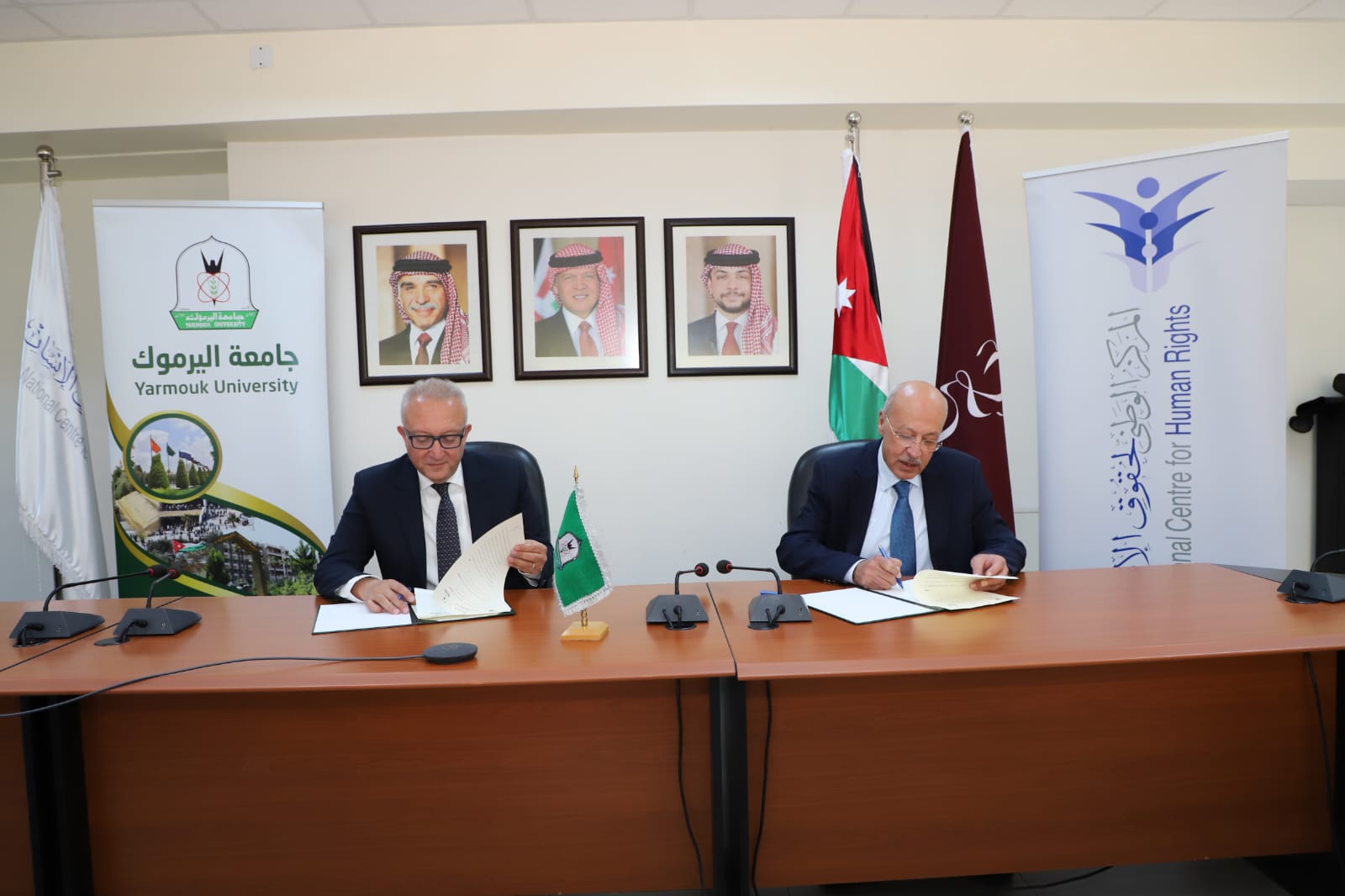
Dr. Islam Massad, the President of Yarmouk University, and Commissioner-General Jamal Al-Shamaliya have signed a memorandum of understanding. This agreement aims to foster collaboration between Yarmouk University, represented by the Princess Basma Center for Jordanian Women's Studies, and the National Center for Human Rights. The goal of this collaboration is to integrate human rights concepts into teaching courses, improve cooperation and coordination in exchanging information, and raise awareness about human rights culture.
According to Massad, Yarmouk University has formed a strategic partnership with prominent national institutions, such as the National Center for Human Rights, with the goal of enhancing the university's work system. This partnership aims to cultivate students' understanding and knowledge in various fields, including the overall framework of human rights at both local and international levels. As a result, our students and university staff are better equipped to contribute to their communities and play a more active role in serving their country and improving their surroundings.
The speaker emphasized that Yarmouk University follows a national academic vision based on His Majesty the King's guidance and vision for youth, society, and education. These national visions serve as the driving force behind establishing a broad network of partnerships that enhance the role of scientific centers and colleges in serving the local community. Moreover, these partnerships enable professors and students, particularly those pursuing research in graduate programs, to comprehend the requirements of society and the institutions operating within it.
He stated his belief that the collaboration between Yarmouk University and the National Center for Human Rights will make a unique contribution to guiding focused scientific research in the areas of human rights and law, with the aim of advancing shared national objectives. This collaboration seeks to update the framework of values and legislation through various initiatives, including programs targeting students and the local community, particularly in relation to women's rights and roles. The university's plan and the Princess Basma Center for Jordanian Women's Studies align these efforts with the vision of political modernization and economic and administrative development.
Al-Shamayleh emphasized that the center's law grants it the authority to monitor the human rights situation. This includes incorporating human rights concepts into education, promoting awareness of human rights culture, conducting studies, and publishing specialized reports in the field of human rights to safeguard and advance human rights.
This memorandum's signing aligns with the National Center for Human Rights' plan to improve collaboration and communication with Jordanian universities. These institutions play a crucial role in promoting the culture of human rights and developing individuals who can actively contribute to society. Recognizing the significance of young people in all spheres of life, it is essential to instill in them a solid understanding of human rights concepts. This will ensure their active and constructive participation in nation-building and advancement.
Al-Shamayleh emphasized that this memorandum is part of a shared belief in the significance of women's roles and their empowerment through active participation in various domains. We will achieve this by enhancing collaboration in conducting joint studies and activities related to strengthening human rights principles, exchanging information and experiences, and ensuring ongoing efforts to advance Jordan's progress and safeguard human rights.
The memorandum specifies that the two sides will collaborate to conduct collaborative research on women's rights and organize specialized events and workshops on human rights, particularly those pertaining to women's rights and associated matters.
According to the memorandum, the National Center for Human Rights will provide Yarmouk University with human rights references, documents, and publications. In return, the university will provide the National Center with information regarding the annual report on the human rights situation, specifically focusing on women's rights.
Dr. Batoul Al-Muhaisen, the Director of the Princess Basma Center for Jordanian Women's Studies, and Dr. Tariq Al-Nasser, the Deputy Director of the Center, attended the signing of the agreement.



